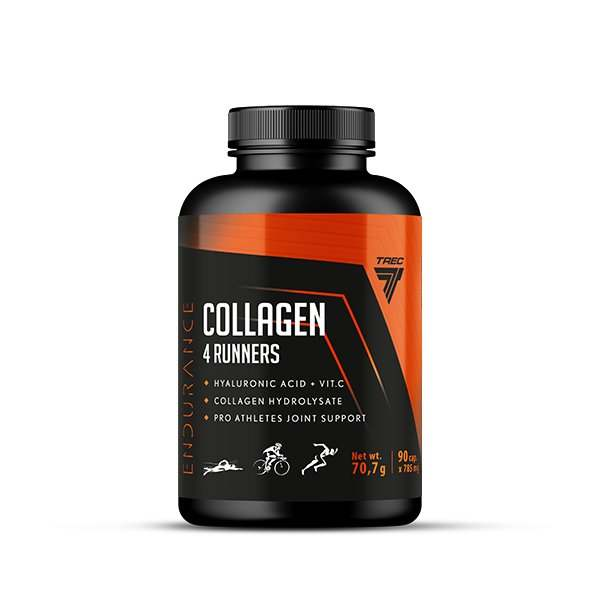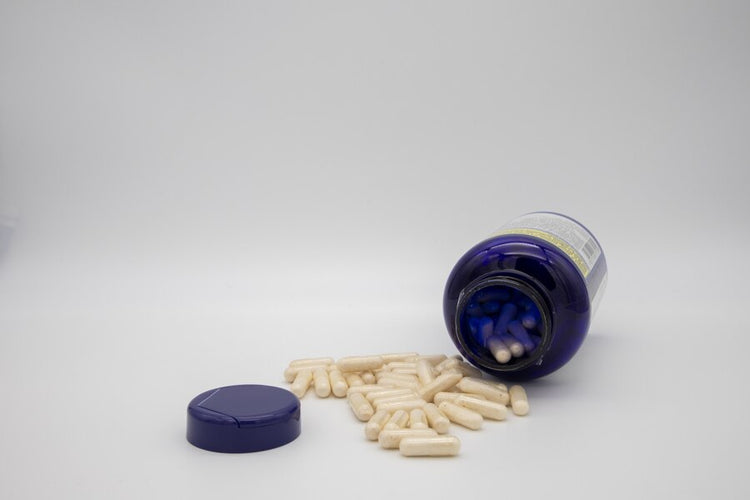What Are the Signs Iron Pills Are Working?


Related products
Iron deficiency, a prevalent condition worldwide, is characterised by a lack of adequate iron levels in the body, leading to various health issues. Common symptoms include fatigue, pallor, shortness of breath, and general weakness. Iron supplements serve as a corrective measure, replenishing iron stores and addressing the symptoms of deficiency. Identifying the signs of improvement following iron supplementation is crucial for evaluating treatment efficacy and ensuring the restoration of health and well-being.
Understanding Iron Deficiency and Supplements
Iron deficiency, particularly leading to anaemia, is a significant global health issue. It primarily affects women, children, and those with dietary restrictions. The deficiency arises due to factors such as blood loss, inadequate dietary intake, or poor absorption, leading to symptoms like fatigue, dizziness, and irregular heartbeat. Understanding the underlying causes and recognising those at risk is essential for effective management and prevention.
Types of Iron Supplements and Their Function
Iron supplements are available in various forms, including ferrous and ferric iron salts, with different absorption rates and gastrointestinal effects. These supplements aim to replenish iron stores, aiding in the production of red blood cells and the transportation of oxygen throughout the body. The choice of supplement depends on individual needs, tolerance, and medical advice.
Factors Affecting Iron Absorption
Iron absorption can be influenced by numerous factors, including the type of iron, concurrent intake of certain foods or medications, and individual health conditions. Vitamin C is known to enhance iron absorption, whereas calcium, tea, and coffee may inhibit it. Understanding these factors is vital for maximising the effectiveness of iron supplementation.
Early Signs of Improvement
Increased Energy Levels and Decreased Fatigue
One of the first signs that iron pills are working is a noticeable increase in energy levels and a reduction in fatigue. This improvement is due to the enhanced oxygen-carrying capacity of the blood, allowing for better energy production and utilisation in bodily functions.
Improved Cognitive Functions
Following iron supplementation, individuals often report improvements in cognitive functions, such as concentration and memory. This enhancement is linked to the crucial role of iron in brain function and neurotransmitter synthesis, highlighting the importance of addressing iron deficiency for mental health.
Changes in Physical Symptoms
Visible changes in physical symptoms, such as a reduction in pallor and healthier gums, are indicative signs that iron supplements are taking effect. These improvements reflect the restoration of normal iron levels, contributing to the overall well-being of the individual.
Long-term Health Improvements
Restoration of Normal Hemoglobin Levels
The long-term goal of iron supplementation is the restoration of normal hemoglobin levels, a process that can take several months. Regular monitoring through blood tests is essential to evaluate the progress and effectiveness of treatment, ensuring that the individual is on the right path to recovery.
Improved Immune Function and Disease Resistance
Adequate iron levels are crucial for a robust immune system and increased resistance to disease. Over time, individuals taking iron supplements may notice fewer infections and an overall improvement in health, highlighting the importance of maintaining optimal iron levels.
Enhanced Muscle Function and Physical Endurance
Iron plays a significant role in muscle function and energy metabolism. Long-term improvements following iron supplementation include enhanced muscle strength and increased physical endurance, enabling individuals to engage in daily activities and exercise with greater ease and efficiency.
In conclusion, recognising the signs of improvement when taking iron pills is crucial for individuals with iron deficiency. Monitoring changes in energy, cognitive function, physical symptoms, and long-term health indicators provides valuable feedback on treatment efficacy and guides further medical advice and dietary adjustments.
Physical Indicators
Changes in Blood Work Results
A primary indicator that iron supplements are effective is a change in blood work results, notably in hemoglobin and ferritin levels. Hemoglobin levels are crucial as they reflect the capacity of blood to carry oxygen, while ferritin levels indicate the stored iron in the body. A gradual increase in these levels is a positive sign, demonstrating the efficacy of the supplementation.
Visible Improvements
The impact of iron supplements extends to visible physical changes. Improvements in skin tone, hair, and nail health are indicative of successful iron therapy. Healthier skin appears less pale and more vibrant, while hair and nails become stronger and less brittle, reflecting the critical role of iron in cellular growth and repair.
Decrease in Symptoms
A significant reduction in symptoms such as shortness of breath, dizziness, and cold extremities is a clear sign that iron pills are working. These symptoms are directly related to iron deficiency's impact on oxygen transport and energy levels, and their resolution is a key indicator of improving iron status.
Subjective Well-being Improvements
Mood Enhancement
Iron supplementation can lead to mood enhancement and a noticeable reduction in the symptoms of depression and anxiety. Iron plays a vital role in brain function and neurotransmitter synthesis, and its deficiency can negatively affect mental health. Improvements in mood and cognitive function are subjective but important indicators of the benefits of iron supplementation.
Increased Overall Well-being and Quality of Life
An increase in overall well-being and quality of life often accompanies the physical and mental improvements brought by iron therapy. This can be seen in greater energy levels, improved physical health, and enhanced mental clarity, contributing to a more active and fulfilling life.
Patient Testimonials and Experiences
Patient testimonials and personal experiences provide valuable insights into the benefits of iron supplementation. These real-life accounts can offer encouragement and support to others undergoing similar treatment, highlighting the positive outcomes and motivating continued adherence to the prescribed regimen.
Monitoring and Adjusting Iron Supplementation
Importance of Regular Blood Tests and Doctor Consultations
Regular monitoring through blood tests and doctor consultations is essential to track the progress of iron therapy and ensure its effectiveness. These check-ups help in adjusting the dosage as needed and in identifying any potential issues early.
How to Adjust Dosage Based on Symptoms and Test Results
Dosage adjustments should be based on symptoms and blood test results, under the guidance of a healthcare professional. Finding the right balance is crucial to maximise the benefits of iron supplementation while minimising side effects.
Potential Side Effects and How to Mitigate Them
While iron supplements are beneficial, they can cause side effects such as gastrointestinal discomfort. Discussing these with a healthcare provider and following their recommendations can help mitigate these effects, ensuring the treatment's success.
Additional Considerations
Dietary Changes and Lifestyle Adjustments
Incorporating dietary changes and lifestyle adjustments can support iron absorption and overall treatment efficacy. This includes consuming iron-rich foods and understanding how different nutrients and foods can enhance or inhibit iron absorption.
The Role of Vitamin C and Other Nutrients
Vitamin C and other nutrients play a significant role in enhancing iron absorption. Including vitamin C-rich foods in meals can improve the effectiveness of iron supplements, facilitating better health outcomes.
When to Consult a Healthcare Provider
It is crucial to consult a healthcare provider if there are changes in symptoms or concerns about the treatment. Professional guidance ensures that any issues are addressed promptly and that the iron supplementation regimen remains effective and safe.
People Also Ask
Does Black Poop Mean Iron Tablets are Working?
The appearance of black stools after starting iron supplements is a common and generally non-alarming side effect. This change in stool colour is due to the iron not absorbed by the body being excreted through the gastrointestinal tract. While it can be startling, it's often considered a sign that the body is processing the iron. However, if there is concern, especially if accompanied by other symptoms such as abdominal pain or discomfort, it is crucial to consult a healthcare professional to rule out other causes.
How Long Does it Take to See Results from Taking Iron Pills?
The time frame to see tangible results from taking iron pills can vary significantly from person to person, depending on the severity of the iron deficiency, the type of iron supplement, and individual absorption rates. Generally, symptomatic relief, such as reduced fatigue and improved energy levels, may be noticed within a few weeks. However, for a complete restoration of iron levels and resolution of anemia, it can take several months. Regular monitoring through blood tests is essential to track progress and adjust treatment as needed.
How Do You Feel When You Start Taking Iron?
When starting iron supplementation, individuals might experience various responses. Initially, there might be little noticeable change; however, as the body begins to assimilate more iron, symptoms of iron deficiency such as fatigue, weakness, and cognitive issues may start to diminish. Some individuals might experience gastrointestinal side effects such as constipation, nausea, or darkened stools due to the iron supplements. It is important to discuss any adverse effects with a healthcare provider, as they can often suggest ways to mitigate these side effects or adjust the type or dosage of iron being consumed.
Conclusion
The journey to overcome iron deficiency through supplementation is a multifaceted process, marked by various signs and indicators of improvement. Recognising changes in physical health, such as improved hemoglobin and ferritin levels, alongside visible improvements in skin, hair, and nail health, provides tangible evidence of the efficacy of iron pills. Subjective improvements in well-being, including enhanced mood and increased energy levels, further signify the positive impact of iron supplementation on an individual's quality of life.
However, the process requires careful monitoring and adjustment to ensure optimal outcomes. Regular consultations with healthcare professionals, adherence to prescribed dosages, and mindful observation of the body's responses are crucial steps in this journey. Moreover, supporting iron absorption through dietary and lifestyle adjustments enhances the effectiveness of the treatment.
Ultimately, while the path to correcting iron deficiency may vary from person to person, understanding the signs of improvement and maintaining open communication with healthcare providers are key components to achieving and sustaining good health. Through patience, perseverance, and informed practices, individuals can effectively address iron deficiency, leading to a healthier, more vibrant life.






















 Rated Excellent by 26,523+ Reviews
Rated Excellent by 26,523+ Reviews